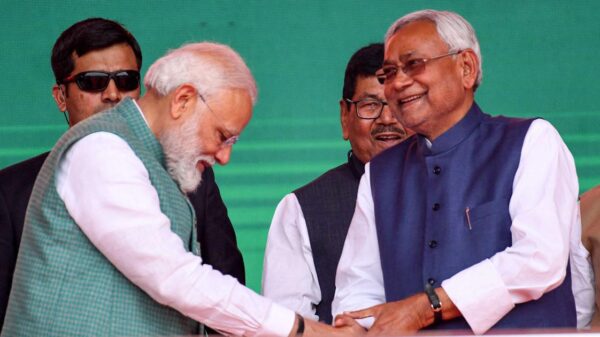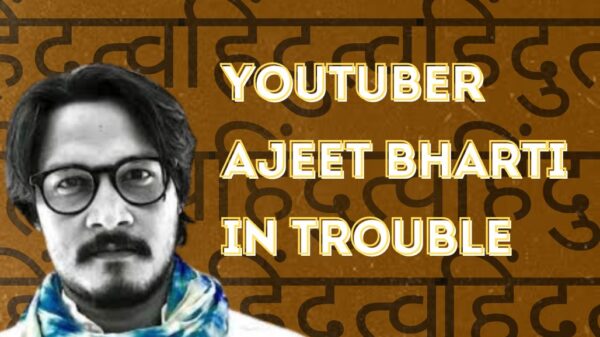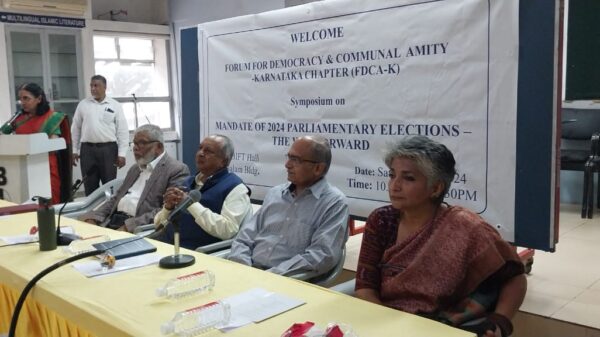The state government’s Animal Husbandry and Veterinary Services Department- the Karnataka Animal Husbandry has requested the Bruhat Bengaluru Mahanagara Palike (BBMP) to impose obligatory stunning of animals at slaughter houses and poultry stores in Bengaluru, inflicting another blow to meat shops in Karnataka. This comes in the wake of a hate campaign in Karnataka targeting halal meat and Muslim-owned meat outlets.
The department has also requested officials to ensure that stunning facilities are in effect before issuing licences to meat stores, according to the order. They also warned that meat stores that do not follow the protocol before slaughter might face fines ranging from 50,000 to 1 lakh rupees.
“We have received complaints from people about the stunning procedure not being followed at slaughter houses and chicken stalls,” the department said, seeking a report on action undertaken by the Bengaluru municipal body.
However, in an interview, Prabhu Chauhan, Minister of State for Animal Husbandry, stated that his department has not issued the mandatory ‘stunning’ order. “No orders have been issued by our department. Stunning is not mandatory. There was only a letter written that Halal cut should not be practiced. There was no order issued. I will review the letter,” he said.
The deputy director of animal husbandry and veterinary services, Bengaluru Urban district, issued a letter to the BBMP for guaranteeing stunning of animals, citing the 4th rule of the Prevention of Cruelty to Animals (Slaughter House) Rules, 2001, in a letter dated 1st April, which says ‘every slaughterhouse as soon as possible shall provide a separate space for stunning of animals prior to slaughter, bleeding and dressing of the carcasses.’

What Is Stunning?
Slaughterhouses all throughout the world utilize an electric current to stun and render the animal unconscious before mechanised or manual slaughtering. Although large-scale meat manufacturers use these methods to improve the productivity and efficiency of their meat plants, stunned meat products have been known to be avoided by Muslim, Jewish, and other religious communities for religious reasons.
When it comes to religious mandates on meat eating (Muslims depending on the ‘Halalness’, Jews following the ‘Kosher’ rules and Sikhs following ‘Jhatka cut’ practices), procedures like Captive Bolt Stun bring up a complex issue of the status of the animal’s life at the point of killing, raising the question of whether or nota suitable slaughter is being carried out. If the animal is stunned and not alive at the point of slaughter, the animal product is forbidden to eat under several religious mandates.
Is Stunning Permitted Under Islamic Laws?
According to Fataawa Al-Lajnah Al-‘Daa’imah, 22/456-457, if the animal is stunned with a blow to the head or an electric shock and dies before being properly butchered, it is mawqoodhah (killed by a violent blow) and cannot be eaten, even if its neck is severed afterwards.
“Forbidden to you (for food) are: Al‑Maytah (the dead animals — cattle — beast not slaughtered), blood, the flesh of swine, and that on which Allaah’s Name has not been mentioned while slaughtering (that which has been slaughtered as a sacrifice for others than Allah or has been slaughtered for idols) and that which has been killed by strangling, or by a violent blow” [al-Maa’idah 5:3]
Because the animal that is stunned has received a violent blow, Allah has indicated in this verse that such an animal is haram unless it is still alive and slaughtered correctly. The Qur’an thus forbids animals that have been stunned if they die as a result of that stunning before being slaughtered properly.
The need of the expulsion of blood from the animal intended for food is a consideration to its permissibility, as per the fatwa given by Mufti Shabbir Ahmad, Darul Uloom Bury. Blood haemorrhages and clots inside the meat as a result of stunning. The outflow of blood can only occur during ritual slaughter, as opposed to stunning, because the workings of the bodily organs are strongest in the state of consciousness.
Is Stunning A Humane Practice?
“There is evidence from human beings that electrical stimulation is painful,” said Harold Hillman, a British scientist who specialises in the neuroscience of execution procedures. ” Cattle prods or electric batons are used. Victims of torture attest that the larger the voltage or current, the more painful it is; they do not go unconscious immediately. The power used to torture people is of the same order as that used to stun animals.”
“Patients who are given electroshock for manic depression, are anaesthetized because of the stress and pain which would be caused. Other patients, whose hearts require defibrillation with large amounts of energy, are now anaesthetized because those who recovered complained of the pain,” he added.
“Powerful muscle contraction causes painful cramps in athletes. Perhaps the most obvious evidence is that it is painful to touch the electric mains. Why, then, is it so widely believed that electrical stunning is humane?”
Ahead of ‘varshadodaku,’ the day after Ugadi, when many communities in the state hold a non-vegetarian feast, certain right-wing organisations have called for a boycott of ‘halal’ meat.
C T Ravi, the BJP’s national general secretary, has even referred to halal food as “economic jihad.”












































































